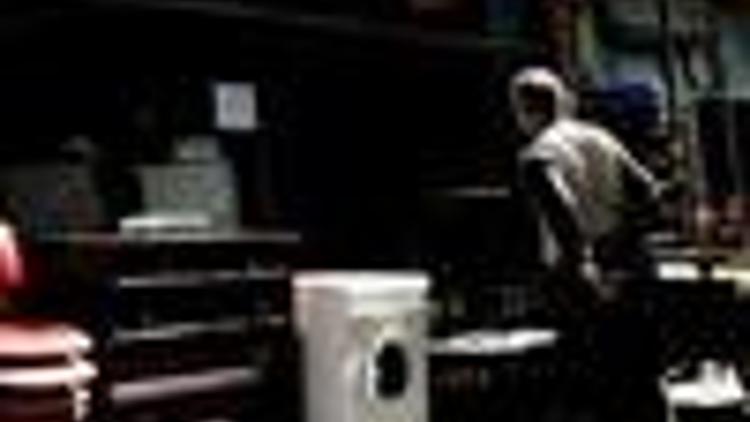Economic crisis fills up antique shops in Turkey, but no buyers
Güncelleme Tarihi:

In Cukurcuma, the Istanbul antique dealers' mecca, the economic crisis has transformed shops into Ali Baba's caves filled with objects sold at low price by people in need, but falling income levels mean there are no buyers.
In the winding streets of this small kingdom for antique hunters below Istiklal Avenue, the main commercial street in Turkey's biggest city, shop owners while away their time drinking tea or chatting as they wait for clients that do not come.
"At the moment, people come here only to sell. The objects keep piling up but there is nobody" to buy them, explained Ayvas Guney, whose family owns a second-hand furniture shop.
Guney's shop provides him a good vantage point to witness the deterioration of living conditions for the people of Istanbul, a sprawling metropolis of some 12 million people, as the global economic turndown bites into Turkey's economy.
"People sell more of their belongings. There are even some who sell things that they really need. Would you sell your fridge or washing machine? People have reached that point," he said.
Fatih Baykan, whose shop is flooded with old books, trinkets and ornaments, agreed.
"Before the crisis, we used to grab biggish sets of objects or furniture. For example, when an old lady died, we could get all the furniture in her flat. Nowadays, people come with a few, small objects they sell of necessity," he said.
He pointed to an icon of a Virgin with Child, set in a gold-coloured frame, to demonstrate his point.
"Yesterday evening, a woman in her 60s, from a Christian minority, came... with that painting. We agreed on a price of 60 liras (35 dollars, 28 euros) and she left. She had not come to earn much money, but it was clear she needed it," Baykan said.
If every cloud has a silver lining, Cukurcuma shop owners have yet to see it.
"We sell items of luxury and pleasure. Right now, people are preoccupied first and foremost with basics, with paying their rent. They will not think of their pleasure unless they have a little money," said Sinan Deviren, who specializes in items from the 1950s to the 1970s.
"An item that used to sell for 5,000 lira one year ago now sells for 3,000 to 3,500 lira," he said, deploring a 30 to 40 percent drop in his turnover.
There is usually one other helpline for the little world of Cukurcuma: advertising agencies and film studios in need of objects for the decor of their footage.
But there too, times are hard.
"We come (to Cukurcuma) less often because the crisis means there are fewer commercials being shot because of reduced budgets," said Didem Ozlu, an advertising company employee.
"We used to rent entire sets of old furniture -- now, we look at the prices, we are more selective. We take smaller and fewer objects," the young woman said.
After several years of high growth of five to 10 percent, Turkey's economy slowed sharply last year to a mere 0.5 percent in the third quarter of 2008.
Annual inflation fell to 7.73 percent in February this year in line with falling demand and unemployment shot to a record 12.3 percent in January after the number of jobless swelled by 645,000 to reach three million.
Industrial production fell by 17.6 percent in December, the worst drop in seven years.
On Monday, a retired policemen, depressed by his debts, threatened to commit stuicide in front of the prime minister's office in Ankara, before he was persuaded to surrender.

